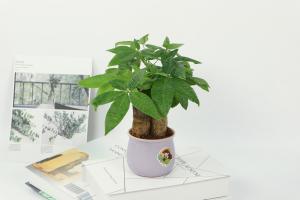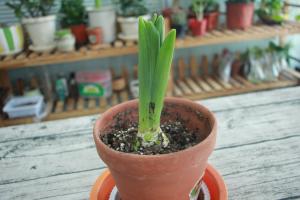Do Recycled Water Plant Bottles Make Your Water Toxic?
Many people opt for bottled water as their primary source of hydration, whether at home or on the go. Multiple studies have shown that drinking enough water is essential for overall health and well-being, but it's important to consider the impact that bottled water and its packaging have on the environment and our health. One concern is whether recycled water plant bottles can make your water toxic.
What are recycled water plant bottles?
Recycled water plant bottles are the clear, plastic bottles that are commonly used to package water and other beverages. These bottles are often made from polyethylene terephthalate (PET) plastic, a lightweight and durable material that is easily recyclable. Bottled water companies often tout the environmental benefits of their bottles, claiming that they use a high percentage of recycled material or that their bottles are 100% recyclable.
Are there potential health risks associated with recycled water plant bottles?
While PET plastic is generally considered safe for food and beverage packaging, there are concerns about the potential health risks associated with recycled water plant bottles. One worry is that the bottles may contain harmful chemicals, such as bisphenol A (BPA) or phthalates. These chemicals are used as additives in some types of plastics, and they have been linked to a range of health problems, including hormone disruption and reproductive issues.
However, it's important to note that the majority of studies on the health effects of BPA and phthalates have focused on their use in food and beverage containers other than PET bottles. Additionally, many bottled water companies claim that they do not use BPA or phthalates in their packaging materials.
What about the recycling process itself?
Another concern is whether the recycling process for PET bottles can lead to harmful chemicals leaching into the water. When PET bottles are recycled, they are washed, ground into small pieces, and then melted down to create new bottles or other products made from recycled plastic. During this process, small amounts of chemicals can be released from the plastic and potentially contaminate the water.
However, studies have shown that the leaching of chemicals during the recycling process is minimal and unlikely to cause harm to human health. The US Food and Drug Administration (FDA) regulates the safety of food and beverage packaging materials, including recycled PET plastic, and has determined that they pose no significant risk to public health.
What can you do?
While the health risks of recycled water plant bottles are likely minimal, there are steps you can take to reduce your exposure to potential chemicals. One option is to switch to a reusable water bottle made from materials such as stainless steel, glass, or BPA-free plastic. Using a water filter at home can also help reduce the amount of plastic water bottles you use and dispose of.
When recycling PET plastic bottles, make sure to follow your local recycling guidelines and do not put any non-recyclable materials in the recycling bin. Proper recycling helps to ensure that the plastic is processed in a safe and environmentally sound manner.
Conclusion
While there are potential health risks associated with recycled water plant bottles, studies have shown that the risk is likely minimal. The US FDA and other regulatory agencies have deemed PET plastic to be safe for food and beverage packaging, including recycled PET plastic. However, it's always a good idea to take steps to reduce your exposure to potential chemicals and to recycle plastic materials properly.

 how many times do yo...
how many times do yo... how many planted tre...
how many planted tre... how many pine trees ...
how many pine trees ... how many pecan trees...
how many pecan trees... how many plants comp...
how many plants comp... how many plants can ...
how many plants can ... how many plants and ...
how many plants and ... how many pepper plan...
how many pepper plan...






























